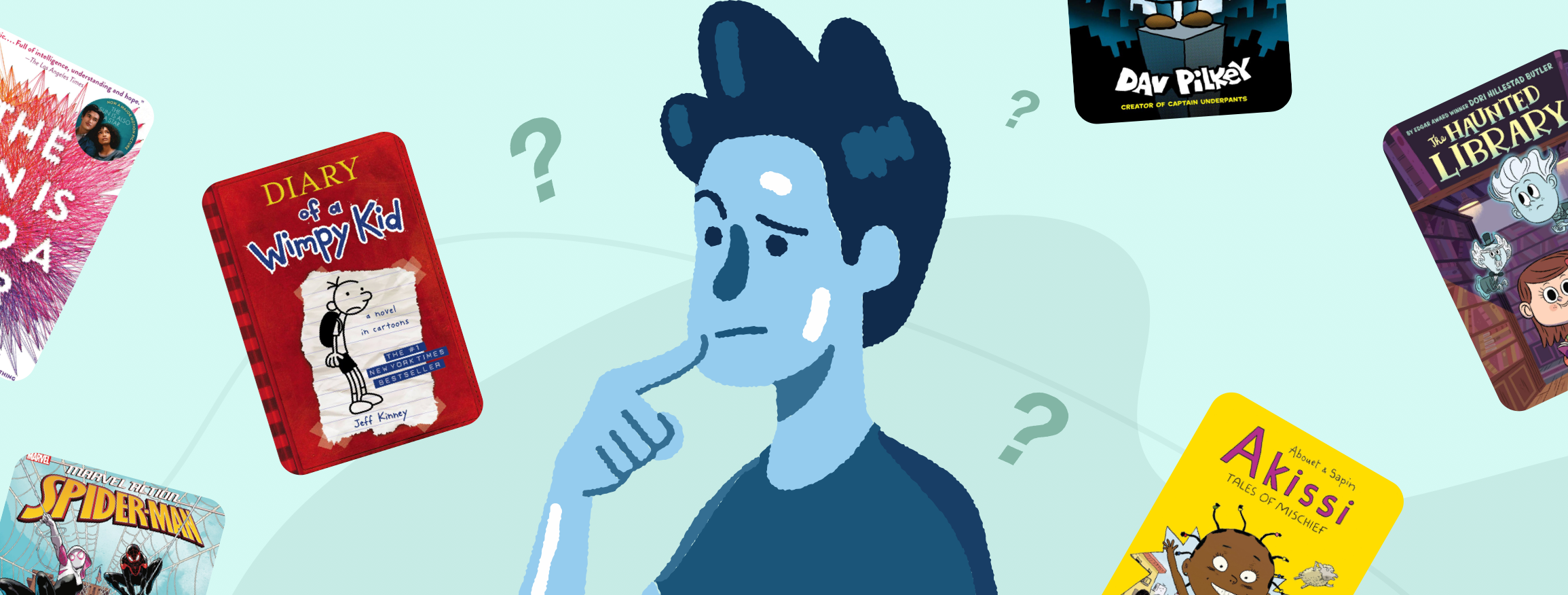For decades, schools have relied on assessment-based reading programs to motivate students to read independently. These programs incentivize students to read pre-approved books and take short comprehension quizzes, which often bolster their language arts grades. But as veteran educator Beth Jarzabek wrote in a recent article: “If our intention as educators is to create lifelong readers, ‘rewarding’ students with the opportunity to take a computerized quiz at the end of a novel greatly misses the mark.”
In recent years, there has been a growing trend among educators to move away from assessment-based reading programs. These programs have been found to fall short of fostering a deep love of reading among students. Instead, school districts are now focusing on encouraging students to read for fun, which not only cultivates a lifelong passion for reading but also leads to greater academic outcomes. In this blog, we will delve into four reasons why schools are ditching assessment-based reading programs and embracing a more enjoyable approach to reading.

Encouraging Freedom of Choice
One of the biggest problems with assessment-based reading programs is that they significantly limit students’ ability to choose books they want to read. In the same article by Beth Jarzabek, she asked her administrators: “’ What happens if a student wants to read a book that isn’t on this list?’ ... ‘Then it doesn’t count!’ came the answer.” With an assessment-based program, if no quiz exists for the book, it doesn’t count toward the student’s independent reading goal. This limits students’ choices to often outdated books that don’t reflect the diverse reading options available for kids today.
By shifting away from assessment-based reading programs, schools are empowering children to indulge in their reading preferences at their own pace and in their preferred format. This newfound freedom of choice offers lifelong benefits. According to the Association for Supervision and Curriculum Development (ASCD), when students have greater autonomy, they are more likely to take ownership of their independent reading and experience genuine pleasure from it.
Take a deep dive into how independent reading impacts student reading achievement.

Building Intrinsic Motivation
Educators know that extrinsic rewards can be helpful for students, particularly if they are working on a task they find difficult or unpleasant. But at the end of the day, teachers want their students to love reading for reading’s sake—and that doesn’t happen if the only reward students get from their independent reading is a good grade on a quiz. That’s why many schools are moving from assessment-based reading programs to reading programs like Beanstack, which balance extrinsic rewards like digital badges with intrinsic rewards like the satisfaction of tracking and achieving personal goals.
Over time, the extrinsic rewards that motivate more reluctant students will give way to a natural love of reading as they discover books they enjoy and recognize their achievements. As an elementary school teacher, Elizabeth Mulvahill writes: “Kids are still developing and building up their bank account of experiences that provide the basis for intrinsic motivation. So if they need a little external motivation to master a new skill or tread into unfamiliar territory, that’s okay…The key is finding the right balance.”
Learn more about what psychology can teach us about supporting students' intrinsic motivation to read.

Incentivizing Students to Read at Their Level
One challenge teachers and librarians face is incentivizing students to choose books at their reading level. With assessment-based reading programs, advanced readers can “game” the system by reading books far below their reading level, answering quiz questions, and scoring more points than their peers. Similarly, students reading at a lower level might choose books that are too difficult to compete with their peers and become frustrated and apathetic. And because of the limited options available within the program, avid readers might run out of books at their grade level and start reading books that are either too challenging or contain inappropriate content for their age group.
To overcome this challenge, it is essential to select a program that doesn't penalize or reward students based on their reading level. Instead, programs like Beanstack focus on rewarding students for the amount of time they spend reading. This approach encourages students to choose books that align with their interests and abilities. Whether they complete one hundred pages or just five pages, what truly matters is their commitment to daily reading.
Discover a different approach to track and encourage student reading growth.

Building a Reading Community
Finally, assessment-based reading programs don’t encourage students to join a reading community. With a reading assessment, students read independently, take their quizzes independently, and move on. There’s no opportunity for discussion with friends or sharing of knowledge—and that can feel lonely. In contrast, reading challenges are a community effort. Programs like Beanstack let students share their progress with friends, find new books, and compare their badges. Plus, students can track time spent during class read-alouds which help build vocabulary, improve listening skills, and spark a lifelong love of reading.
The Power of Reading for Fun
To foster a lifelong love of reading, it's crucial to make the reading experience enjoyable. Fortunately, there are innovative programs available today that eliminate the need for arbitrary assessments and a limited selection of books to track student reading. With programs like Beanstack, students are not only motivated to discover and read the books they truly enjoy but also encouraged to share their passion for reading with their peers and community.
Are you ready to switch to a new independent reading program? Learn more about one Beanstack client’s journey or contact us today to see a live demo.

Beanstack Client Story
Learn more about Lamar Consolidated ISD.
